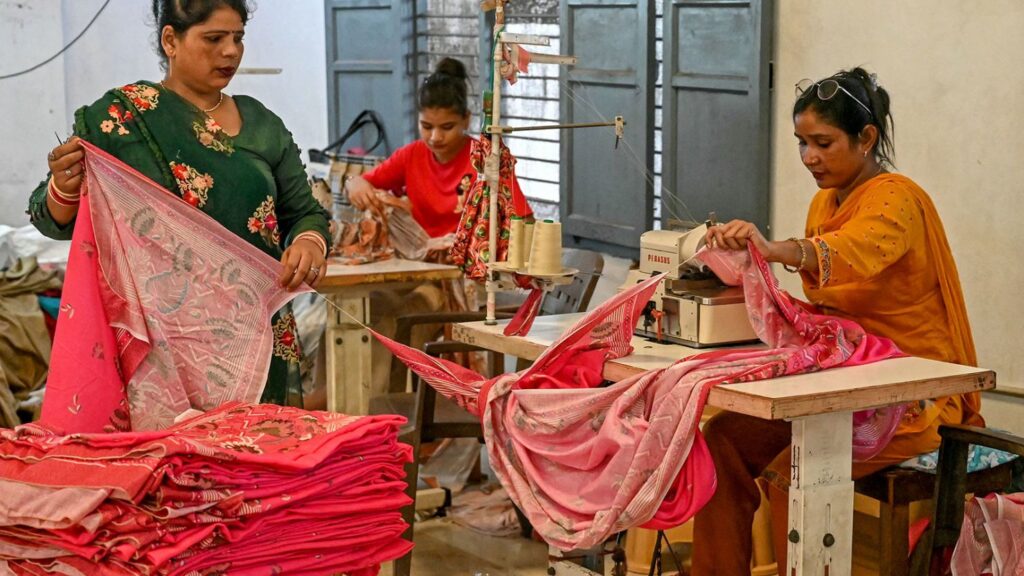Two decades ago, Jinul Abedeen left his family and moved to India’s capital where he spent a year learning Zardozi, an ancient and intricate threadwork technique he hoped would equip him to support his family for decades to come.
The gamble succeeded. He landed a job at Orient Craft, a major garment factory on the outskirts of New Delhi that supplies global brands like Gap, Ralph Lauren, and American Eagle. For 12 years, he has created pieces destined for clothing racks 8,000 miles away in the United States.
“This is a true skill,” he said, recalling that year spent learning his craft when he lived on his meagre savings, as his needle moved across a sheer piece of fabric to form a flower petal. “Otherwise, it would not take a year to learn.”
Now, that hard-won livelihood, is threatened by a force beyond his control.
On Wednesday, the White House imposed 50% tariffs on Indian goods – some of the highest the US has imposed on any of its trade partners in what is already a historic global trade war – threatening to decimate business that depends on Indian exports like textiles, diamonds, steel and automobiles
Continue reading the complete article on the original source



